Culture & Travel
13 May 2025As our ferry shudders under the force of its docking maneuvers and finally opens its ramp at Kuzu Harbor, the island of Gökçeada—land of autumn, melancholy, and grapes—greets us with a quiet hello.
We’ve left behind the long days of summer; autumn has come knocking at our door. For many, September marks the beginning of a season associated with sorrow and farewells. It slowly opens the door to fall and waits in silence for us to step through.
Are you among those who see autumn as a source of sadness? Or do you view it as a natural phase in life’s rhythm—something meant to be lived and completed?
Perhaps it’s the endings that make autumn feel so melancholic: the loves that fade, the youth that slips away, the lives that run their course. Yet nothing in life is entirely black or white—there are always shades of gray in between.
Maybe that's why I tend to see autumn differently. The suffocating heat gently gives way to a soft coolness. Nature begins to change color and becomes more photogenic, more poetic. And all of this, in fact, signals new journeys—offering new reasons to travel. That’s why I see September and fall not as an ending, but as the perfect beginning for new adventures..
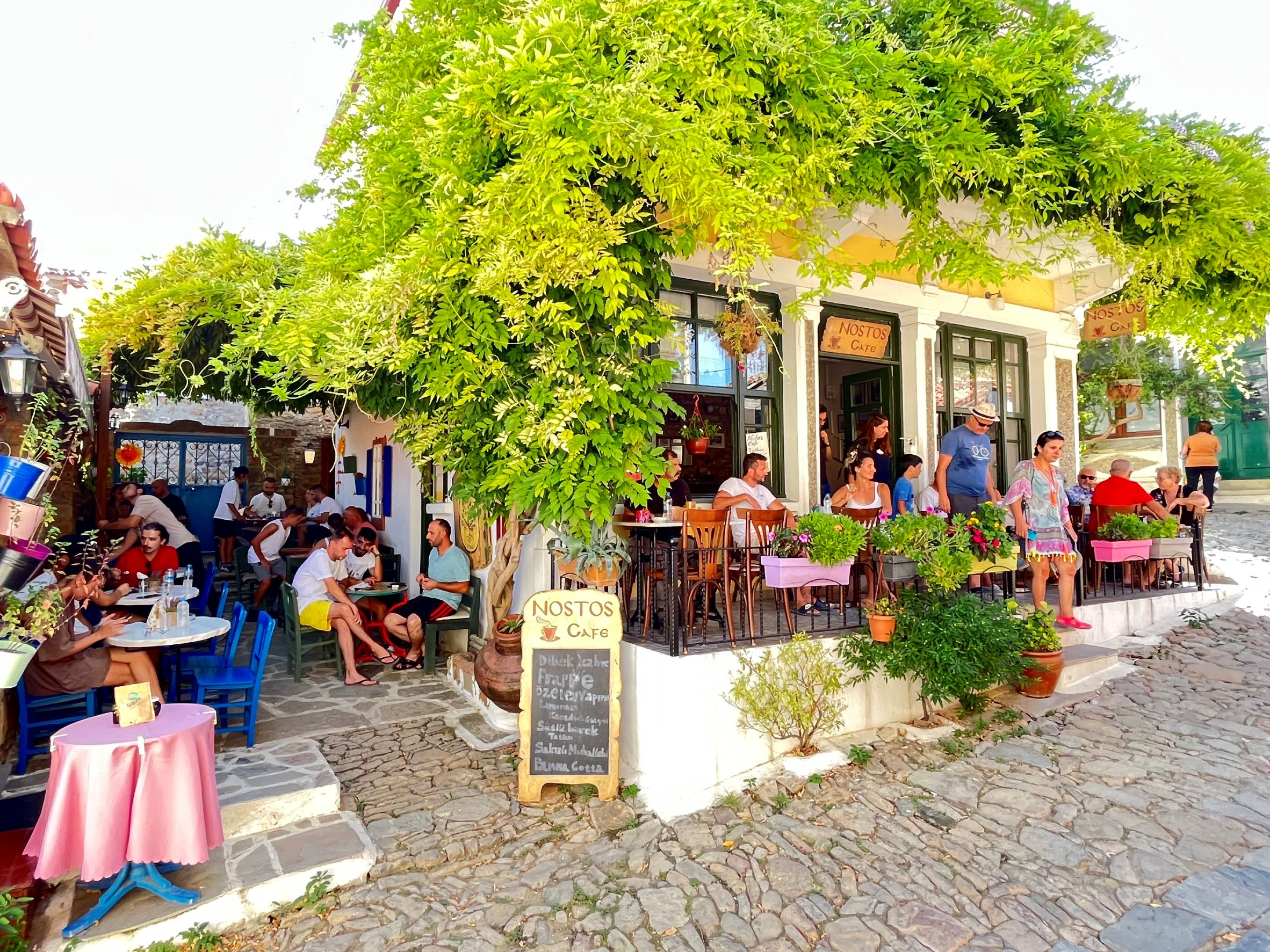
The Turkish word Eylül (September) originates from the Assyrian word Elūlu, meaning harvest or grape gathering. In other words, it signifies the time to reap the rewards of efforts that have taken months or even years. In Syriac and Arabic, the word also translates to “grape.” From a metaphorical perspective, autumn is the season in which we harvest the fruits of the life we've shaped with hard work and dedication. So instead of mourning the end of summer, wouldn’t it make more sense to see September—and autumn—as a beautiful reason for new journeys?
That’s exactly what we did. In the first week of September, we answered a friend’s invitation and traveled to Gökçeada, one of the most charming destinations of the autumn season, to take part in the grape harvest.
And for those who say, "Forget what you ate or drank—tell us what you saw!", here’s a little travel selection just for you:
Mustafa’s Café
Since we hit the road at the crack of dawn, we needed a proper wake-up and a cozy breakfast. For a soft landing from Istanbul’s bustle into island life, we headed straight to Mustafa’s Café in Kaleköy (Kastro). Nestled in the courtyard of an old Orthodox Greek church, shaded by plane trees and accompanied by the songs of birds, breakfast here gives you your very first taste of island serenity.
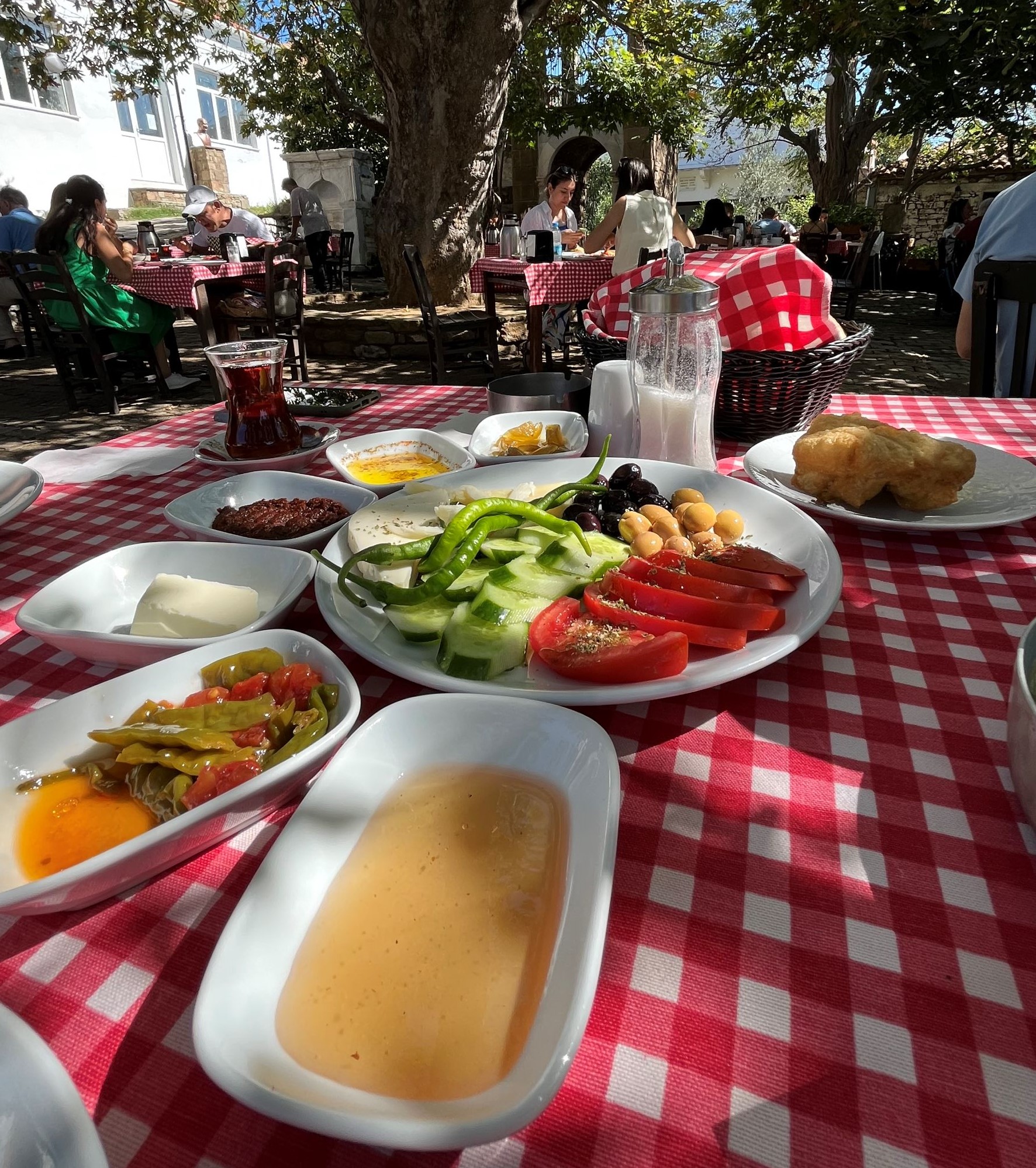
İmroza Soap Workshop
Before leaving Kaleköy, be sure to stop by the İmroza Ecological Living Workshop, founded in 2009 by the couple Aziz and Şule Bengi. Since then, they've been producing organic soaps, candles, and colognes.
Although Gökçeada is rich in olive trees and soap-making was once a common household craft on the island, changing times have all but ended this tradition. Inspired by this, the couple converted the old barn section of their newly purchased home into a small workshop. In their first production, they used olive oil and rainwater collected in their garden.
Today, they craft 20 different types of soap using the cold process method. Beyond the artisanal products, the workshop's stunning view leaves a lasting impression on every visitor.
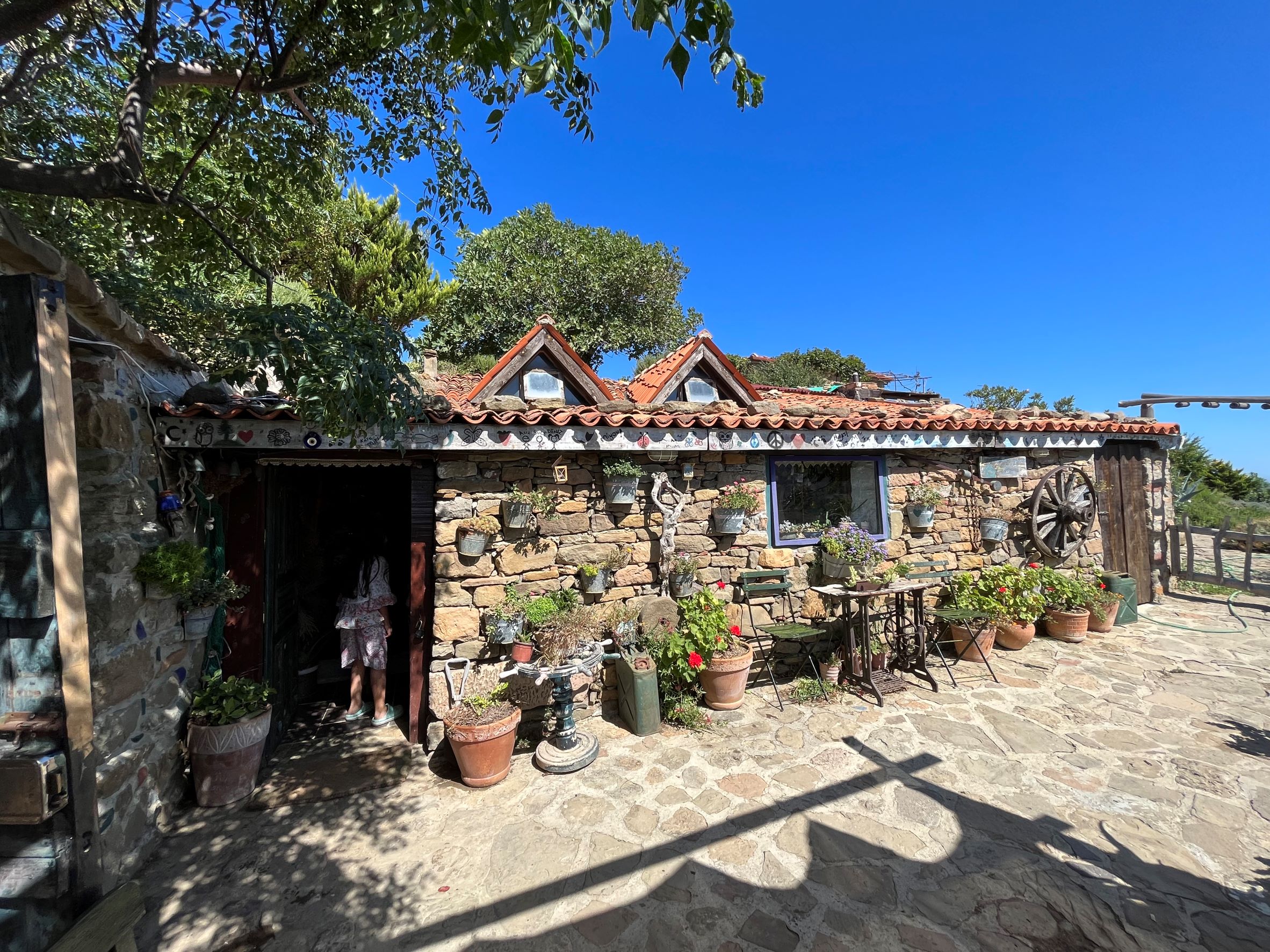
Organic Island – Gökçeada
Leaving Kaleköy behind, we head toward the vast plains of Gökçeada, where most of the island’s agricultural production takes place—and where the airport is also located. According to statistics, only 11% of the island’s total surface area is farmland. Yet despite this, agriculture and livestock have always been practiced here at a scale sufficient to sustain local life.
One unique feature of the island is its free-range livestock farming—a rare system in today’s world. Not just chickens, but sheep, goats, and even cattle roam freely across the island.
In 2000, Gökçeada was officially declared an “Organic Island.” Since then, organic farming has been implemented across all stages—from production to consumption—without the use of agricultural chemicals, hormones, or synthetic fertilizers. All agricultural activities are controlled and certified.
In 2011, the island also earned the title of Cittaslow, becoming the first and only official "slow island" in the world.
For centuries, Gökçeada has been known for its grape and olive production. The unique combination of wind, rainfall, temperature, topography, soil structure, and the humidity, iodine, and oxygen carried in from the sea creates a microclimate that produces grapes of exceptional quality.
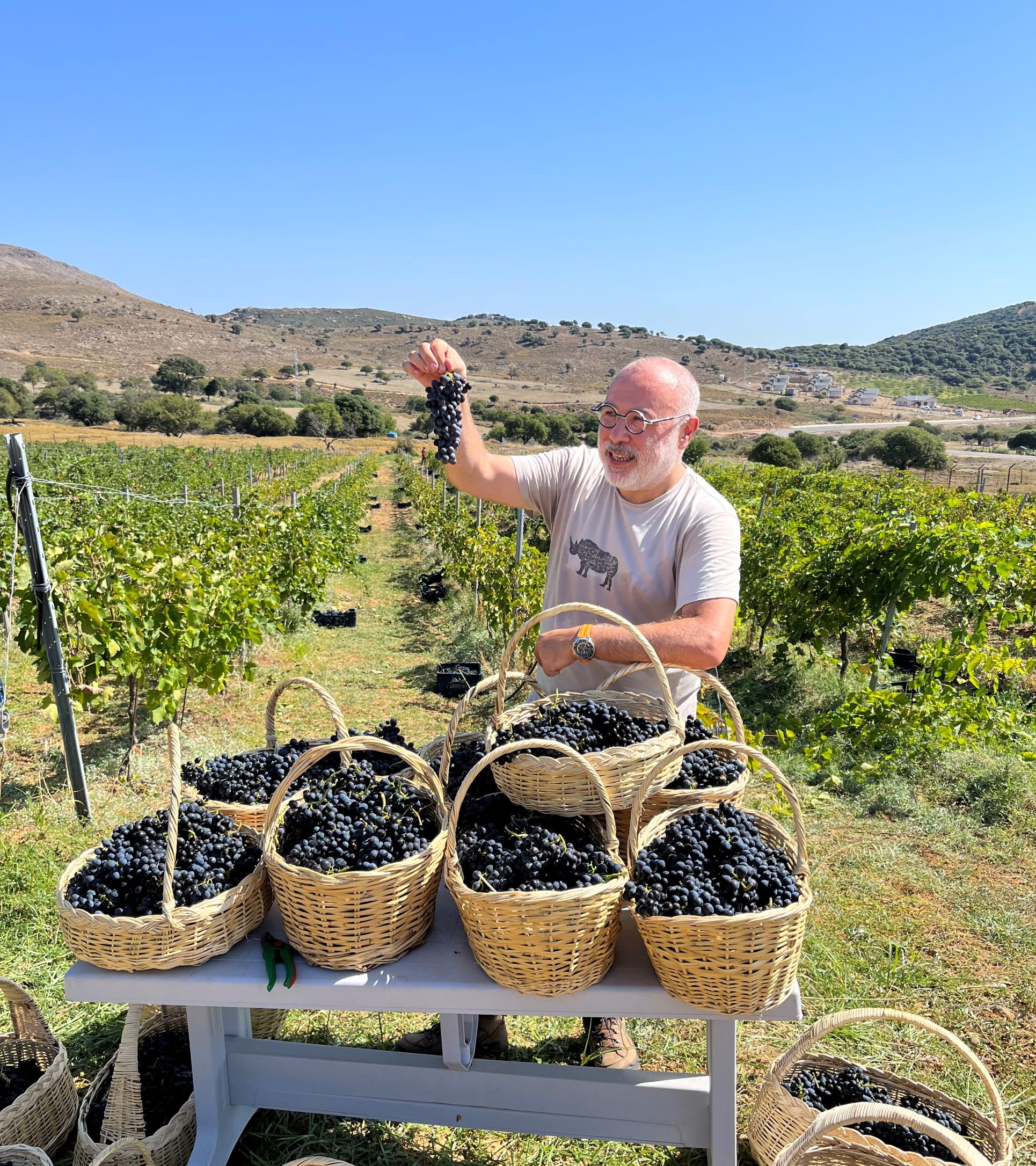
Zeytinliköy (Aya Theodori): The Most Touristic Village of the Island
Leaving the fertile plain behind, we climb toward Zeytinliköy, the birthplace of Ecumenical Patriarch Bartholomew I, the spiritual leader of millions of Orthodox Christians around the world. Like many other villages on the island, this village’s original name—Aya Theodori—was changed to Zeytinliköy (meaning "Olive Village") on September 17, 1965, inspired by the abundance of olive trees surrounding it.
Zeytinliköy is the most visited village on the island by tourists. Its tightly woven layout of cobblestone streets, charming squares, and traditional coffeehouses make it particularly inviting. Interestingly, many locals who had migrated to Greece have returned to open cafés in their homeland. As a result, frappé, a beloved drink in Greece, has become the village’s most popular refreshment—gradually replacing dibek coffee, the traditional ground coffee for which the village was once famous.
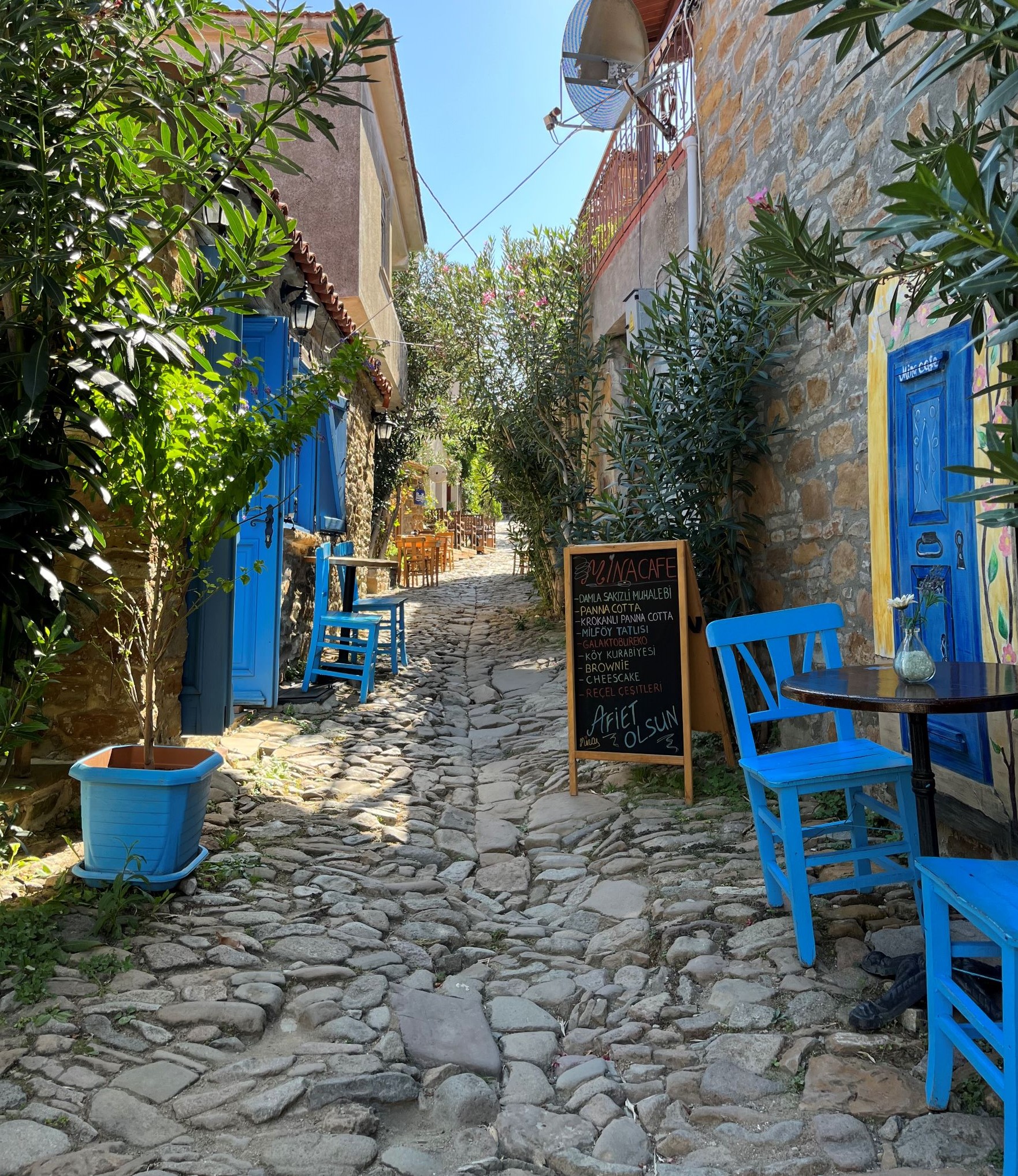
Dereköy (Shinudi): The Loneliest Village on the Island
You begin to understand why Gökçeada is often called “the island of melancholy” when you walk through the silent streets of Dereköy, once one of the most populated villages in Turkiye, with 1,856 residents.
After the Treaty of Lausanne, the island was assigned to the Republic of Turkiye, and at that time, most of the population consisted of Greek Orthodox citizens. As a result, every political tension between Turkiye and Greece deeply affected the island’s residents and stirred fear within the community. Over time, targeted settlement policies, expropriations, and—most significantly—the construction of a semi-open prison near the village contributed to the decline of the local population.
Prisoners were allowed to move about the island freely. Incidents of harassment, and eventually assaults, rapes, and murders, went unpunished. These events devastated the local Greek population, eventually forcing many to abandon their homes and homeland. Years later, one islander would reflect on the tragedy by saying, “A prison was built on the island. Building it wasn’t just a bad decision—it was a terrifying one.”
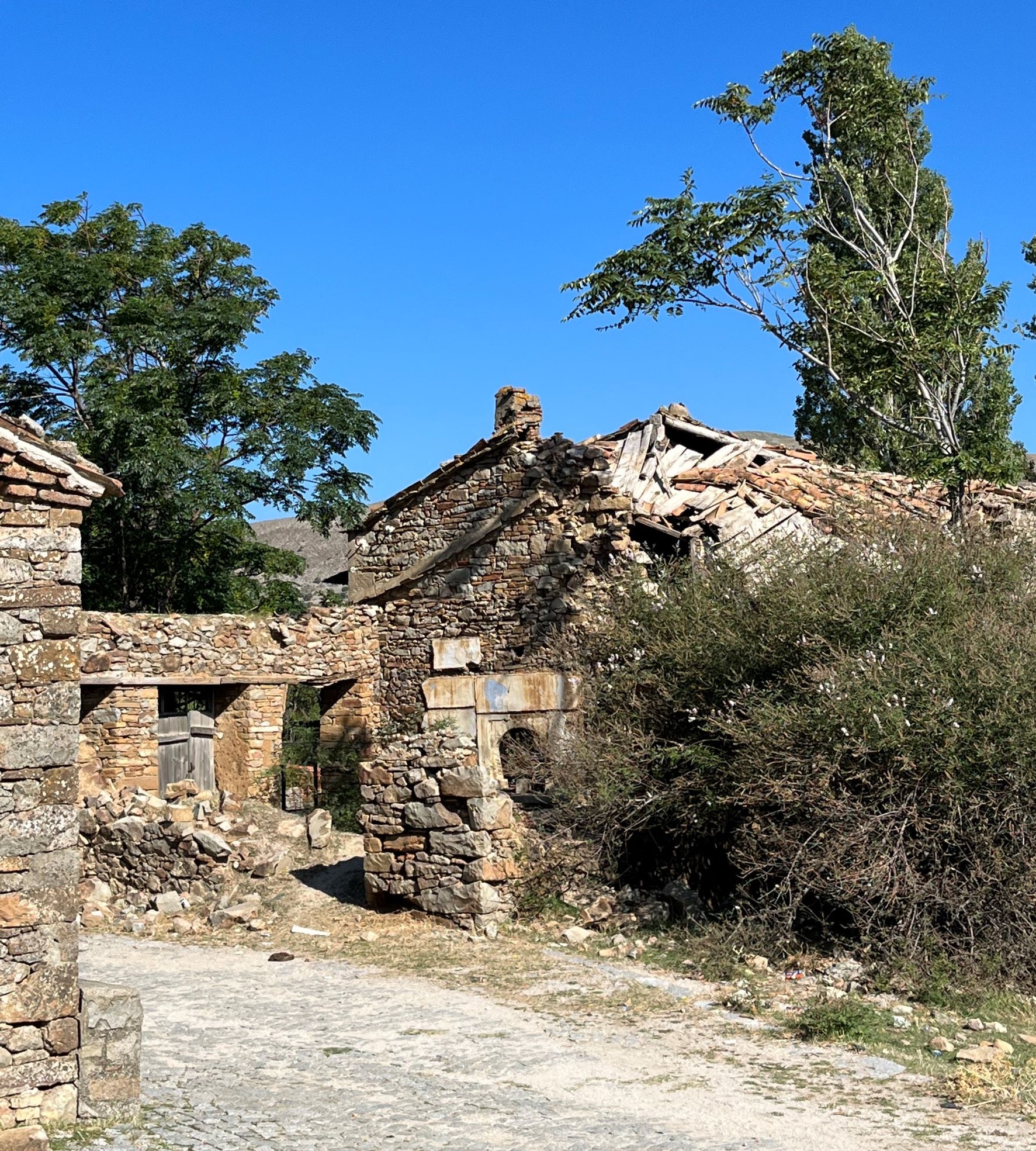
The Abandoned Prison Buildings
The semi-open prison complex near Şirinköy, once made up of 18–20 buildings, was officially closed in 1991. Years later, two of these abandoned buildings were leased by our dear friends Kadri and Hülya Hasdemir, who transformed them into something truly remarkable: one of the world’s 22 organic wineries—and the only one of its kind in Turkiye.
Here, they produce limited batches of İmroz Nympha organic wines, an inspiring project that honors the island’s centuries-old winemaking heritage while setting an example for sustainable, high-quality production.
And I can already say this year’s wines might be a little extra special—because we had the joy of contributing, if only a little, to this year’s grape harvest.
All jokes aside, listening to Kadri and Hülya makes you realize just how demanding and serious a craft organic winemaking truly is.
If you ever find yourself on Gökçeada in the season of hazan—autumn—walk among the vineyards with an awareness of the island’s somber past. You’ll see life through a different lens. I promise.
gezmekyetmez
30 Eylül 2022
